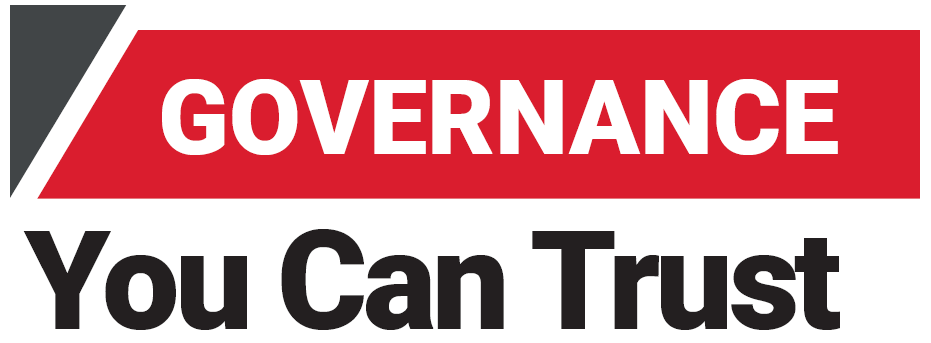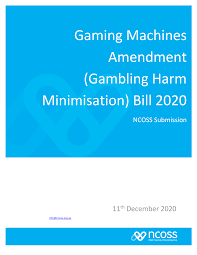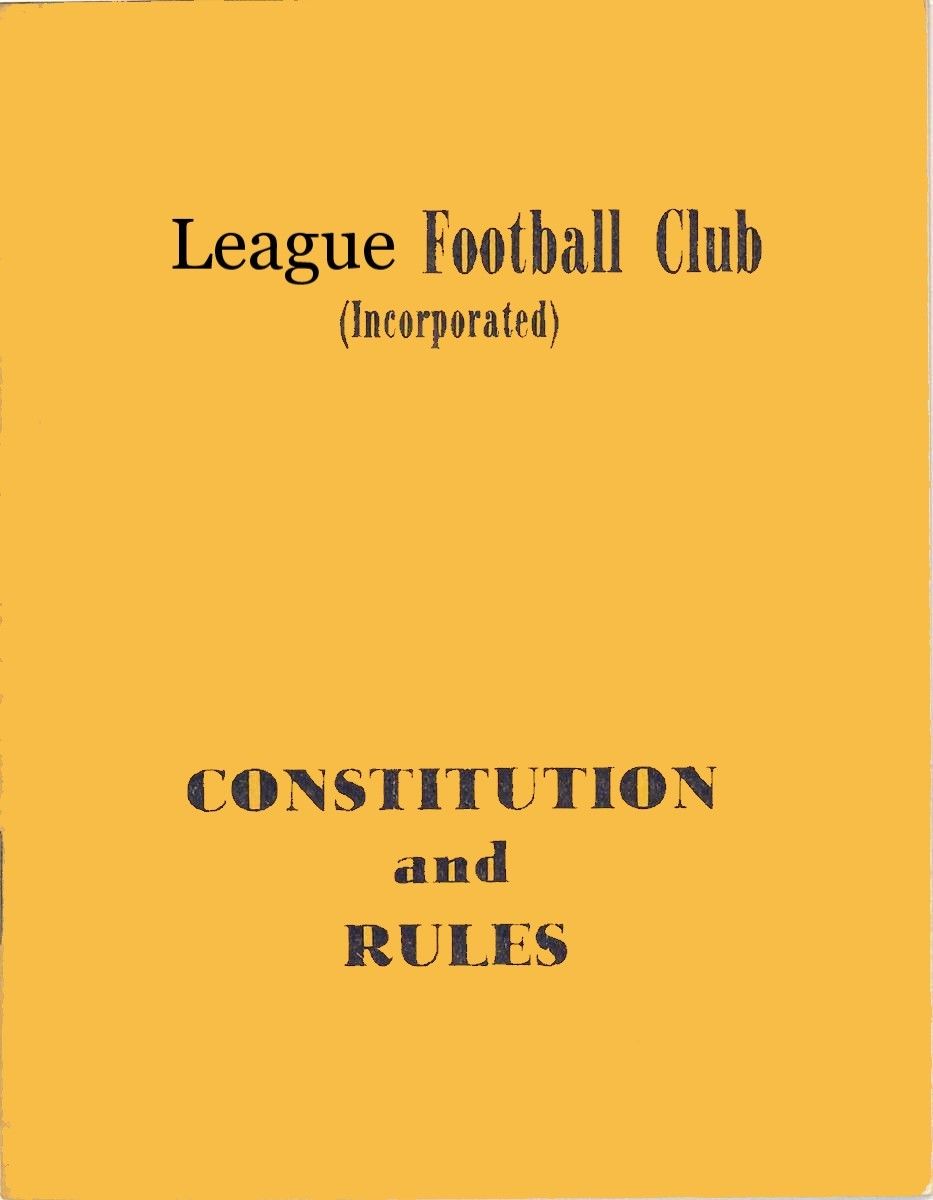AML/CTF Compliance for Clubs and Pubs
Ron Browne • November 10, 2020
Preparing your AML/CTF Compliance Program

AUSTRAC is the Federal Government entity that manages and oversees the Anti-Money Laundering and Counter Terrorism Financing legislations and compliance. They liaise with reporting entities that provide designated services to ensure that they all have appropriate management plans and reporting mechanisms in place.
All registered clubs and hotels (pubs), with sixteen (16) or more electronic gaming machines (EGMs or pokies), are considered ‘reporting entities’ as providers of a ‘designated service’ under the legislation as follows:
- Anti-Money Laundering and Counter-Terrorism Financing Act 2006 - Sect 6, Table 3 – Gambling Services, Item 5
- Provision of a designated service in the capacity of controller of an eligible gaming machine venue, allowing a person to play a game on a gaming machine located at the venue, where the service is provided in the course of carrying on a business.
As such, all reporting entities must submit a compliance report every year, on or before 31 March, the next reporting date being 31 March 2021. Exemptions to reporting exist for clubs and pubs with fifteen (15) EGMs or less and not providing any other designated services.
What are the obligations?
At a high-level overview, all clubs and pubs with 16 EGMs or more are compelled to have in place an AML/CTF Compliance Program. Guidance on developing one of these, if you do not already have one in place, is available from the AUSTRAC Website on their AML/CTF programs overview page.
Quoting from this page:
Your AML/CTF program must be risk-based. This means it must take into account the likely level of risk of your business or organisation being used for money laundering and terrorism financing, based on its size, nature and complexity, taking into account:
• who your customers are?
• the services you provide
• how you deliver those services
• the foreign jurisdictions with which you deal.
There are two parts to an AML/CTF program.
Part A must include processes and procedures to help you identify, mitigate, and manage the money laundering and terrorism financing risks that you may reasonably face.
Part B is focused on the procedures for identifying customers and beneficial owners
including those that are politically exposed persons
(PEPs), and verifying their identity.
AML/CTF Compliance reports
As mentioned above, each year you must submit an Annual AUSTRAC Compliance Report that answer questions about how you have identified and met your anti-money laundering and counter-terrorism financing obligations. These are a legislative requirement and can be submitted anytime between 1 January and 31 March of each calendar year.
Threshold transactions (TT)
The general definition of a Threshold Transaction is a transaction involving the transfer of physical currency, where the total amount of physical currency transferred is not less than $10,000. All clubs and pubs, regardless of size or being a reporting entity, must submit a Threshold Transaction Report (TTR) for all cash transactions of A$10,000.00 or more within 10 business days of the transaction having occurred.
Suspicious matter reports (SMR)
The general definition of a Suspicious Matter is when you have a suspicion that a customer or transaction is related to criminal activity. All clubs and pubs, regardless of size or being a reporting entity, must submit an SMR within 24 hours of becoming suspicious if it relates to terrorism financing, or within three business days for anything else.
AML/CTF Compliance Officer
All reporting entities need to appoint an AML/CTF Compliance Officer to oversee the creation, implementation and monitoring of the venue’s AML/CTF Compliance program. In clubs, the board must appoint a Compliance Officer who is sufficiently senior and has the authority to access and manage the resources available to meet the AML/CTF compliance obligations. This appointment must be recorded in the Board minutes of the meeting where the appointment is made/amended.
Ideally the Compliance Officer is someone trained in AML/CTF Compliance and has a backup Compliance person to cover the responsibilities in the absence of the Compliance Officer. In most clubs the Secretary Manager/General Manager (GM) or Chief Executive Officer (CEO) will be the most appropriate person, however, in larger clubs, it may be the case that the Operations Manager or Gaming Manager will have sufficient authority to fulfil the role, and have the specialist expertise.
Similarly in pubs, either the owner or licensee will often be the most appropriate person to fulfil the role, unless there is a suitable senior manager under the owner or licensee to carry out the role. Some tasks can be delegated by a Compliance Officer to other staff, but they retain the overall responsibility for the effective execution of the required compliance.
AML/CTF Employee Due Diligence and Training
A critical part of ensuring a compliant venue includes conducting due diligence on your staff, especially those involved in the AML/CTF risk areas of your business (gaming, wagering and cash handling). A sound policy is to screen all new staff by making a pre-employment Police Check a condition of employment (in NSW there are many providers with the cost starting at $49 per employee or $29 for volunteers). As a condition of employment, it is not discriminatory and frankly, anyone who baulks at doing a check, is probably not someone you want to employ in your organisation.
AML/CTF Risk Awareness training
AML/CTF Risk Awareness training is another critical element of your Compliance Program (under Part A) and must be provided to all employees to help them understand the risks your business faces and how they can assist the organisation meet their AML/CTF obligations. It is a great idea to also have your board members and anyone involved in supplying your at-risk services trained too. And your program should spell out how you deliver your training – online, face to face or on-the-job etc., and how often you provide refresher training.
Enhanced Customer Due Diligence (ECDD)
Apart from the core issue of ensuring you Know Your Customers (KYC), your program needs to include a section on the enhanced customer due diligence you will engage in when you suspect the risk of money laundering or terrorism financing is high (or higher than usual). Verifying additional information to check on your customers will assist you in minimizing the risk of threshold transactions or suspicious matters occurring that you will need to report.
Transaction Monitoring
This is another key element in your AML/CTF compliance program, and must set out the processes you follow to identify suspicious customer transactions, including:
• unusually large transactions
• complex transactions
• unexpected patterns of transactions that don’t seem to have a legitimate purpose.
The program must outline the risk-based systems and controls you use to monitor customer transactions.
There is a lot of detail you must review when first preparing your AML/CTF Compliance program, so if you are unsure, talk to the subject matter experts in the industry (e.g. Barringtons, Initialism) to assist you in drafting your plan. Then ensure you arrange the independent audit every two to three years with an alternate organisation to the one that helps you draft the program.
The Audit reviewer must not be related to/part of the same company has creates your program, to ensure accurate reviewing.
SUMMARY
For clubs and pubs, the one page AUSTRAC review document
covers five (5) key points to ensure sound AML/CTF Compliance:
1. Ensure your AML/CTF Program is tailored to your club
2. Report customer who receive a high number of gaming payouts
3. Monitor your venue for suspicious activity
4. Keep your enrolment details up to date
5. Maintain accurate electronic records of transactions
Finally, watch this video
for further simple guidance from AUSTRAC to ensure you meet your specific compliance requirements by 31 March 2021.











